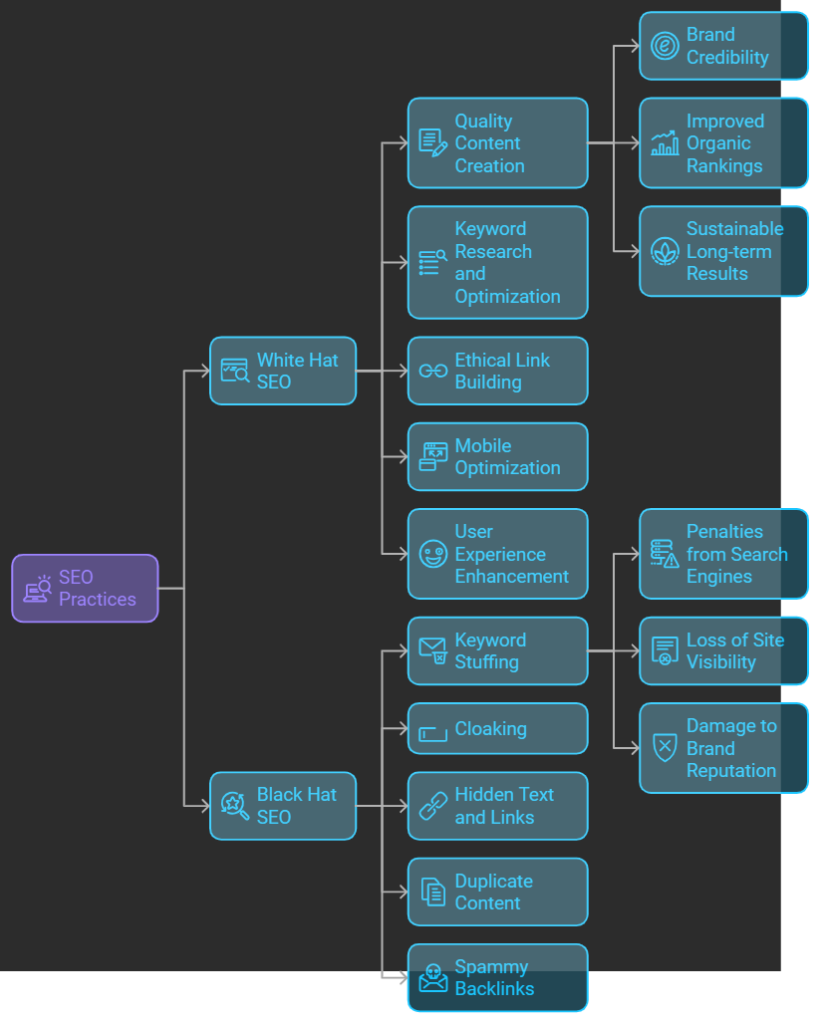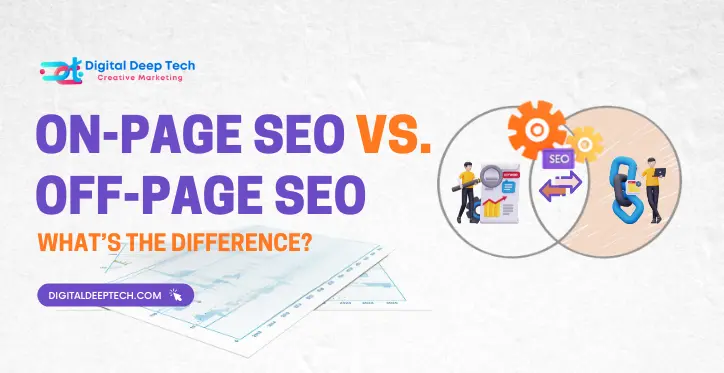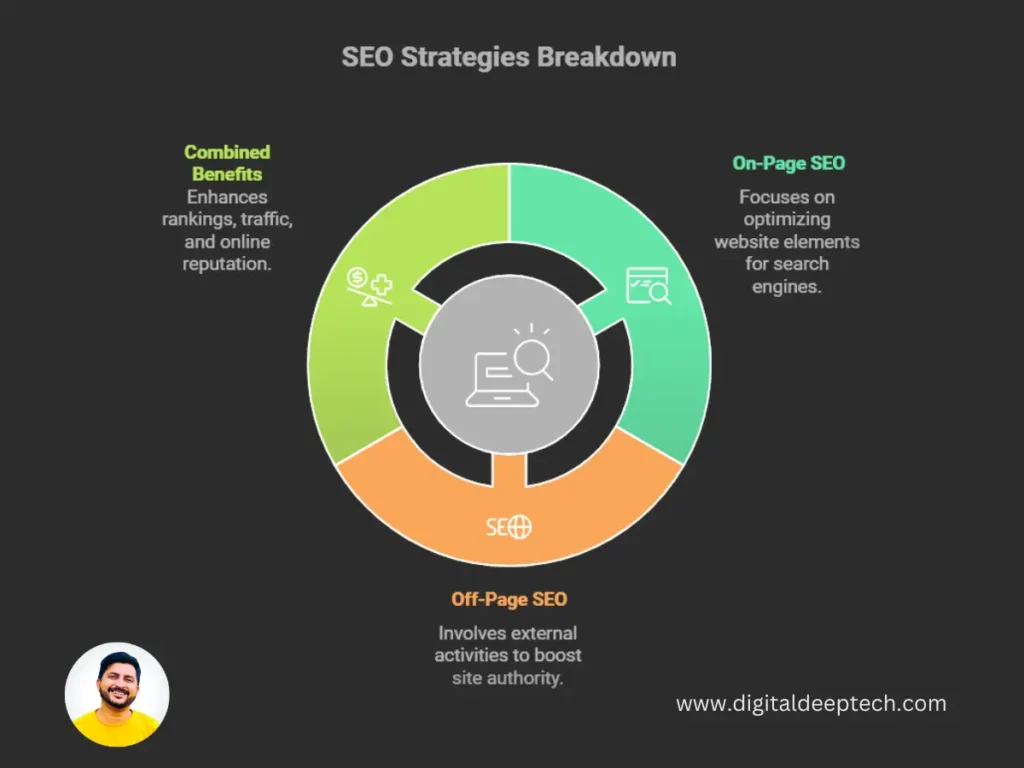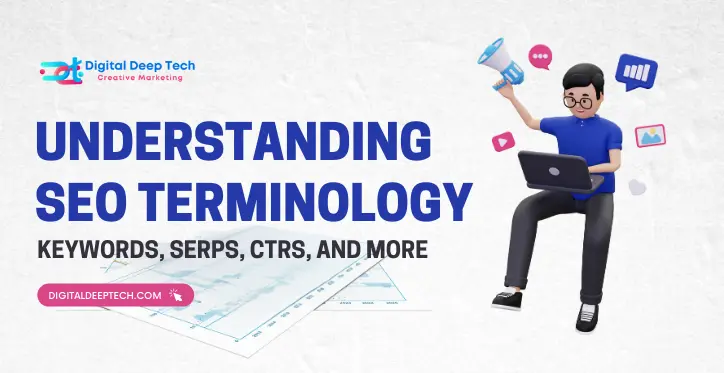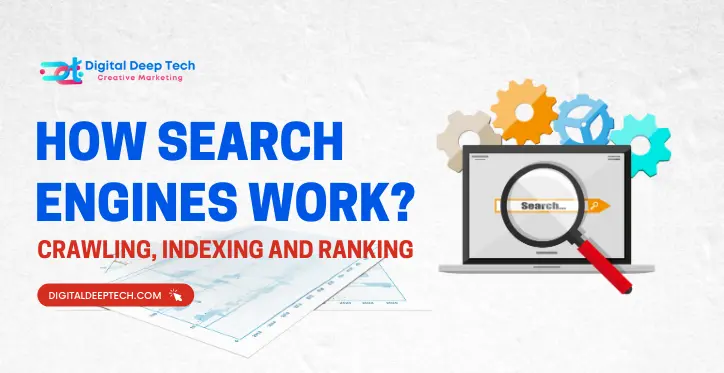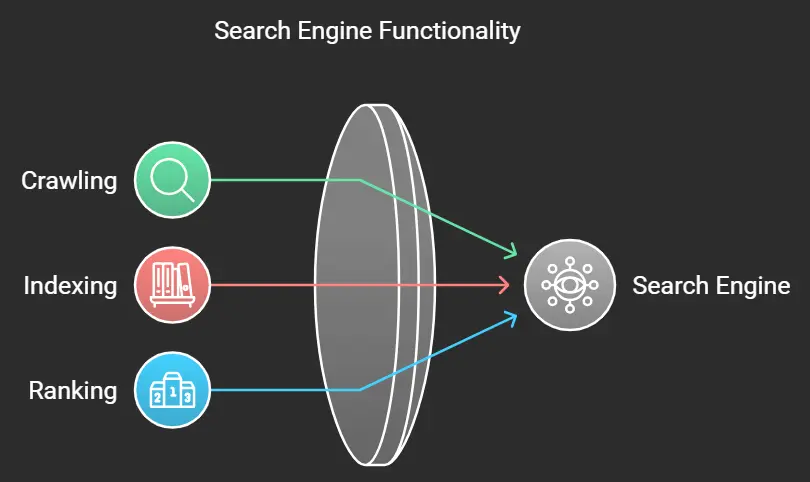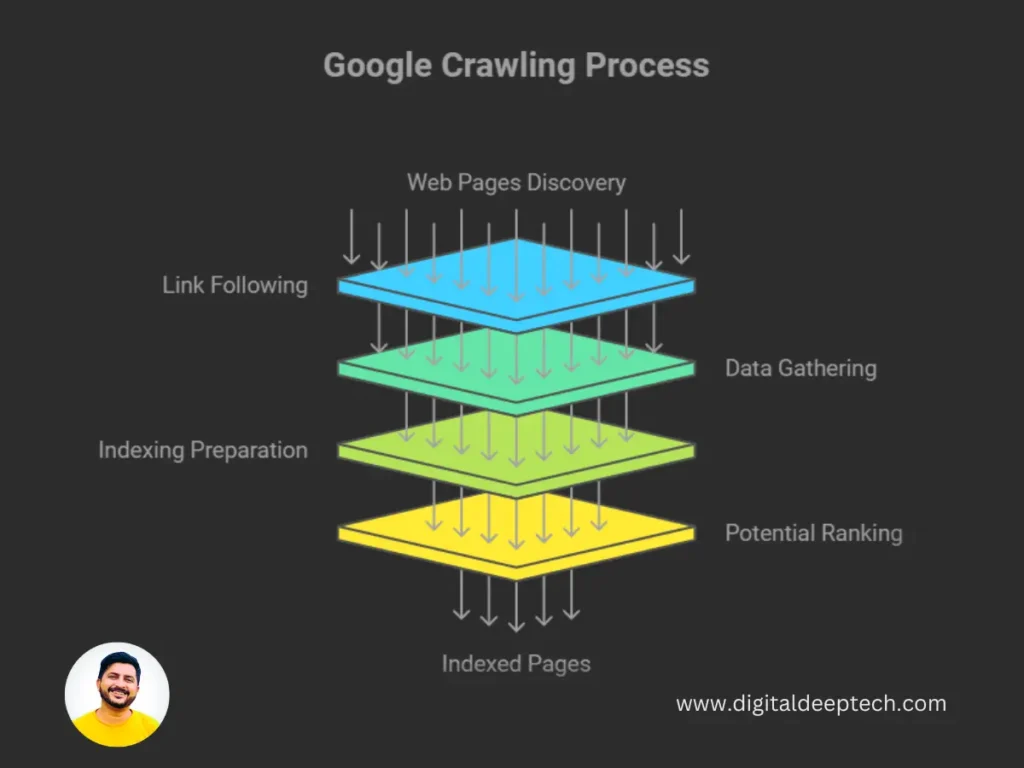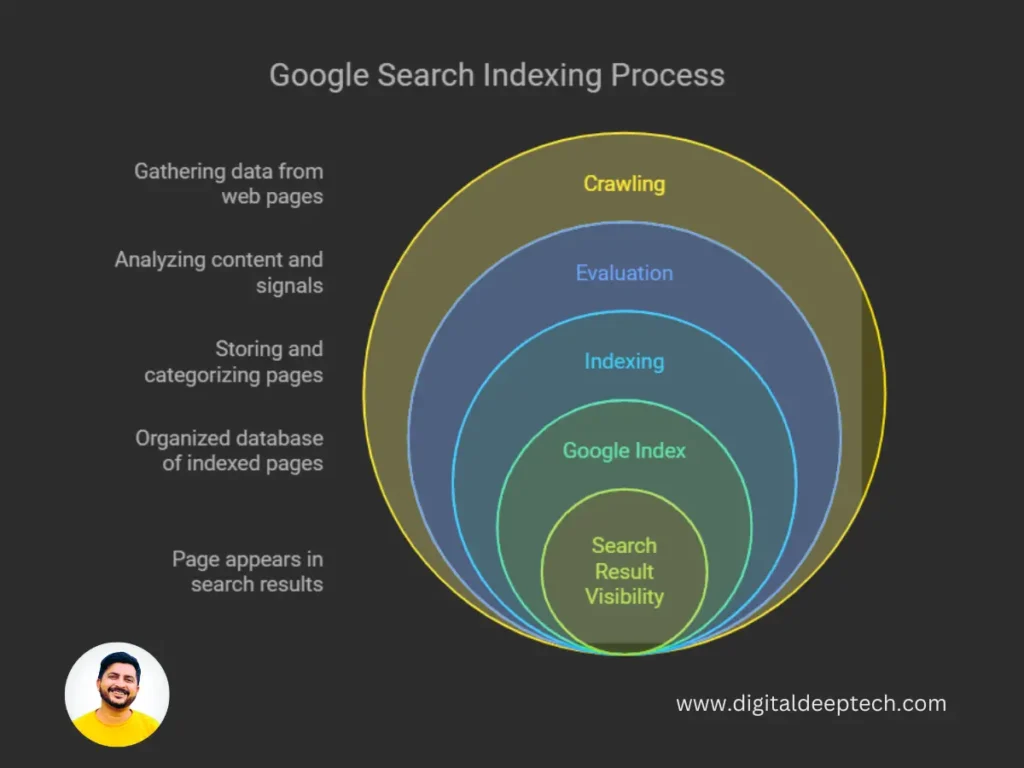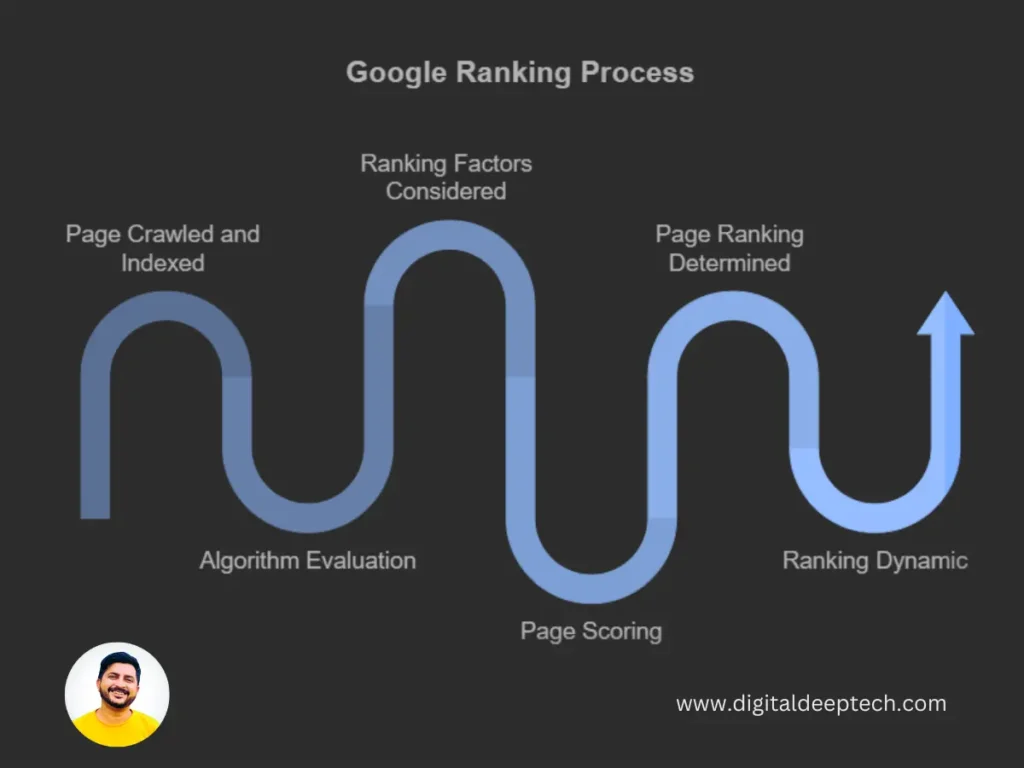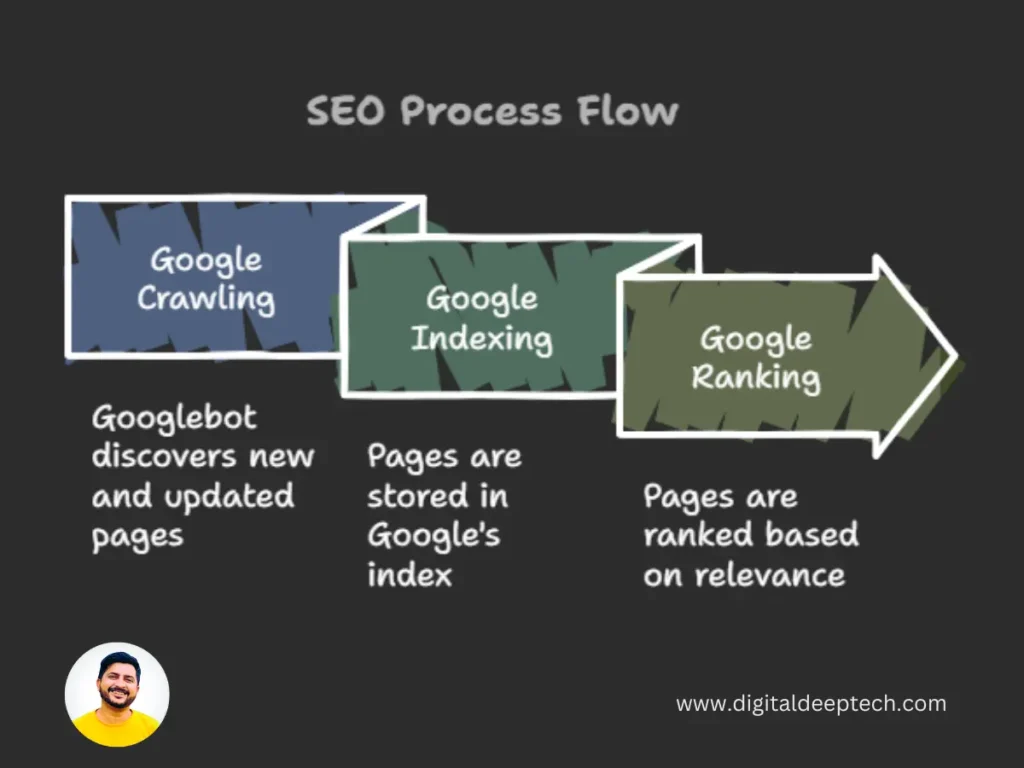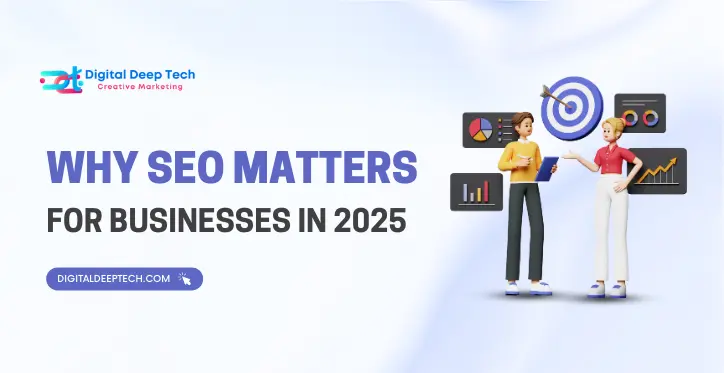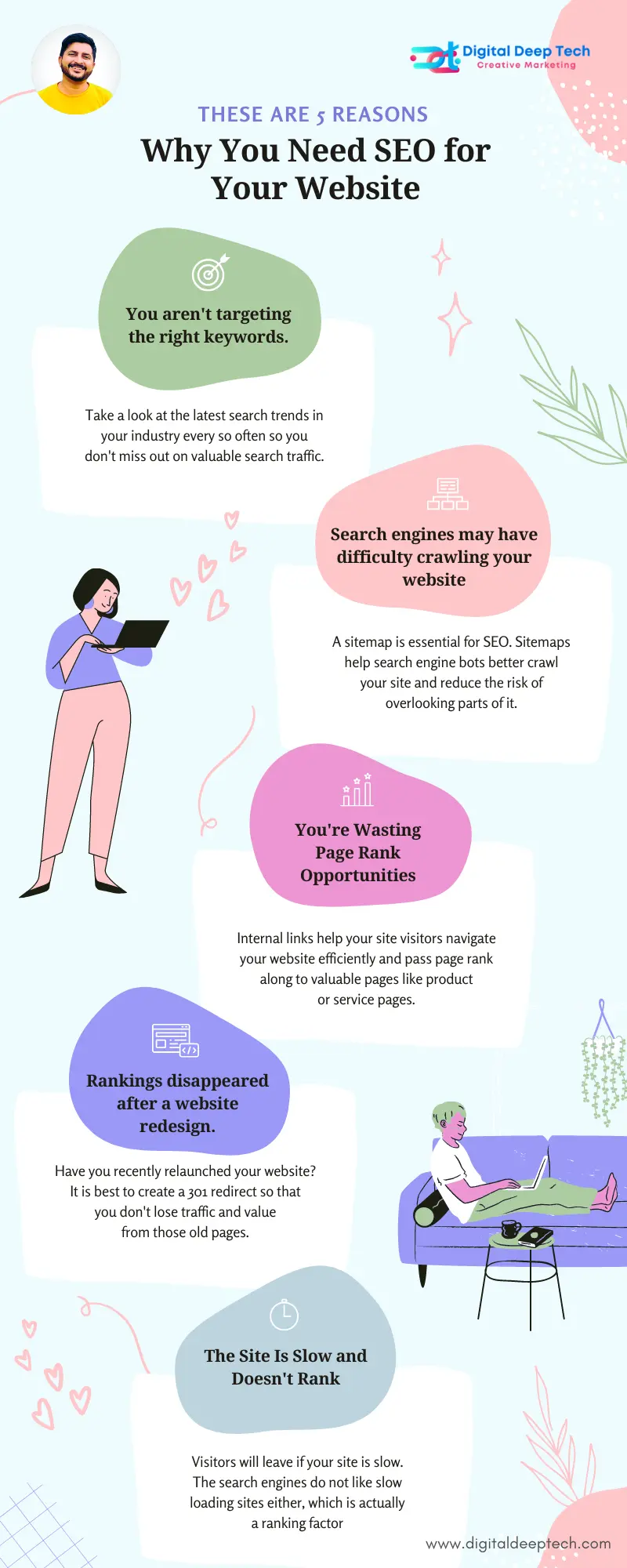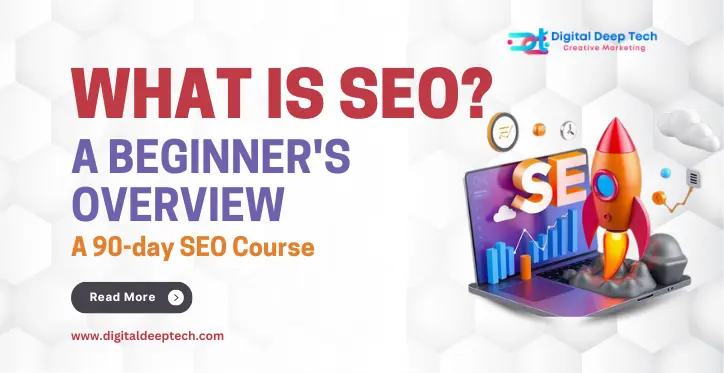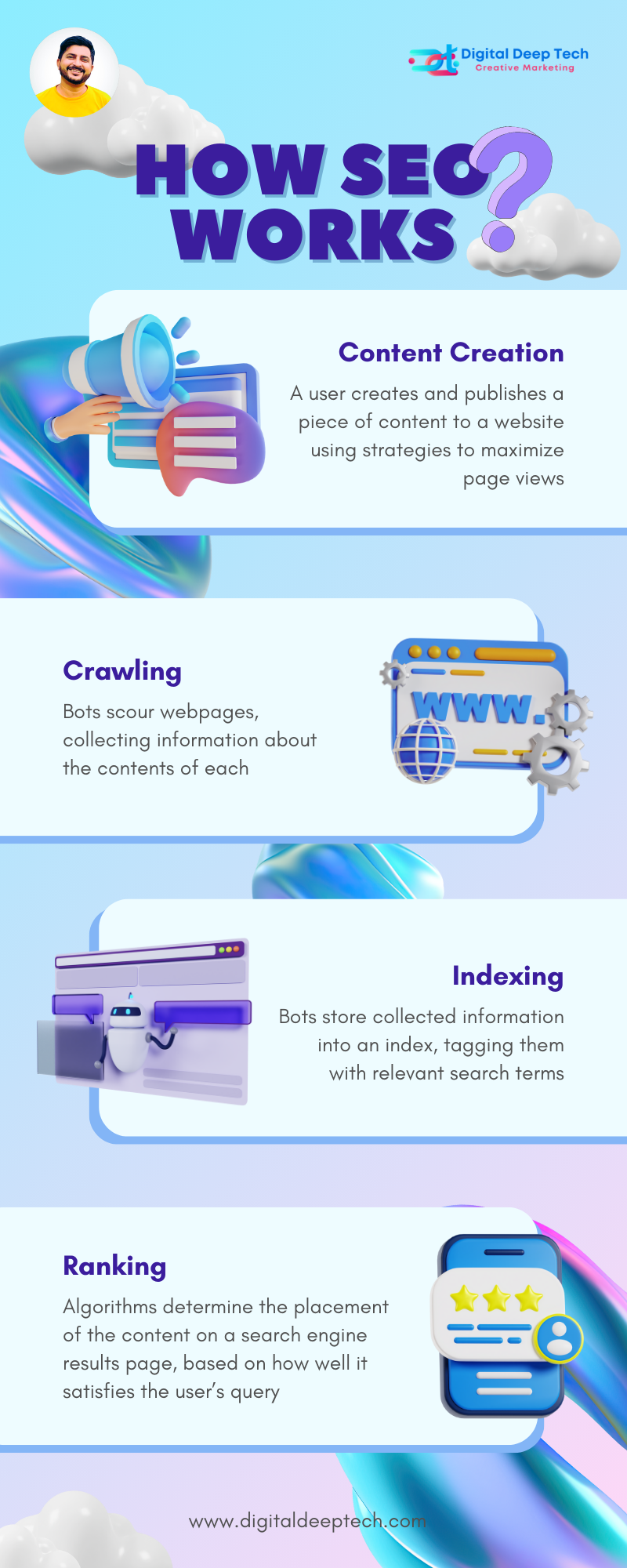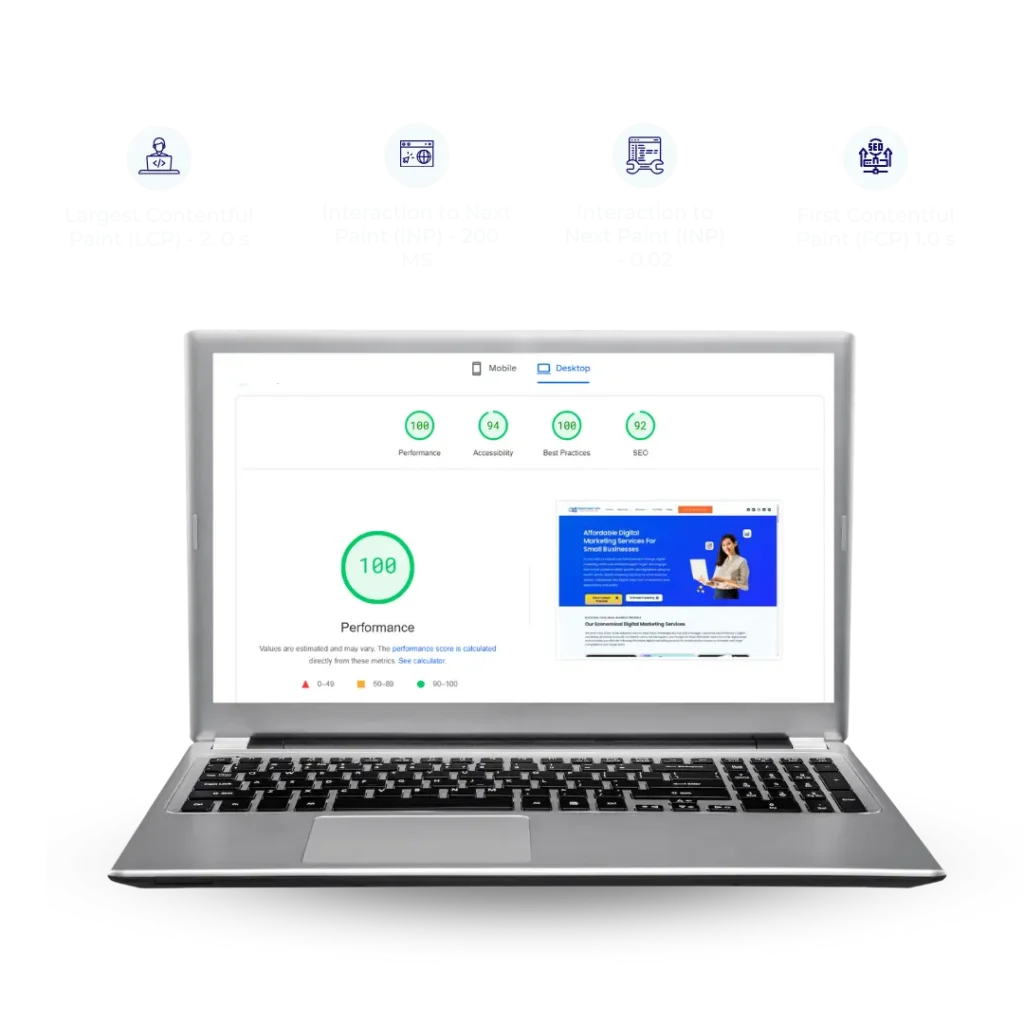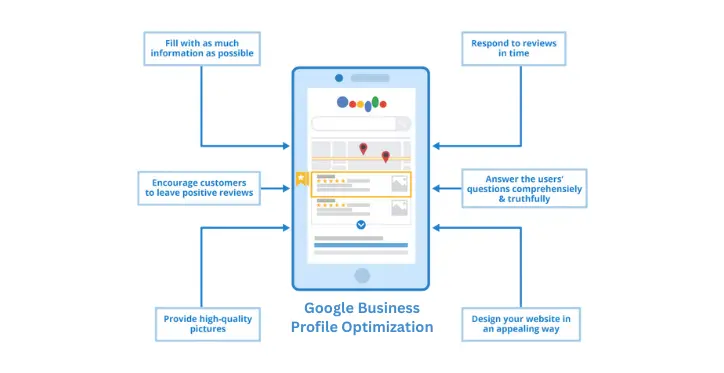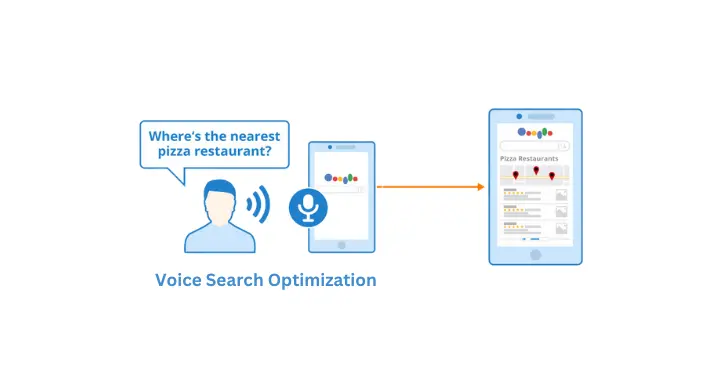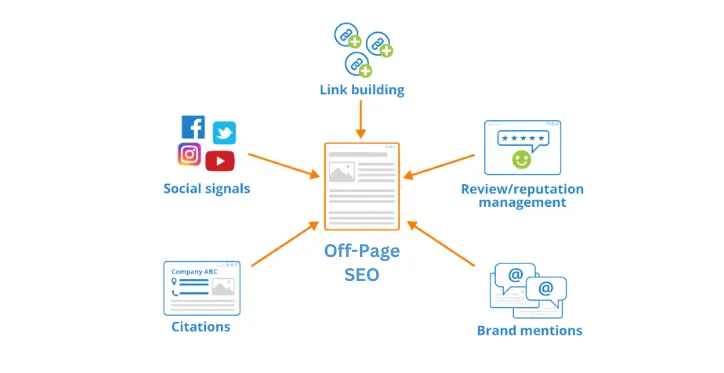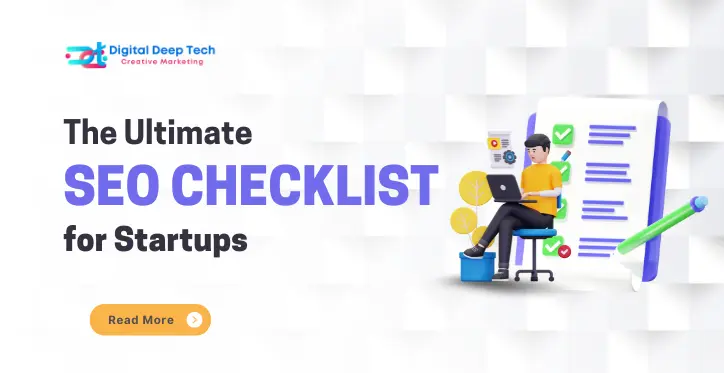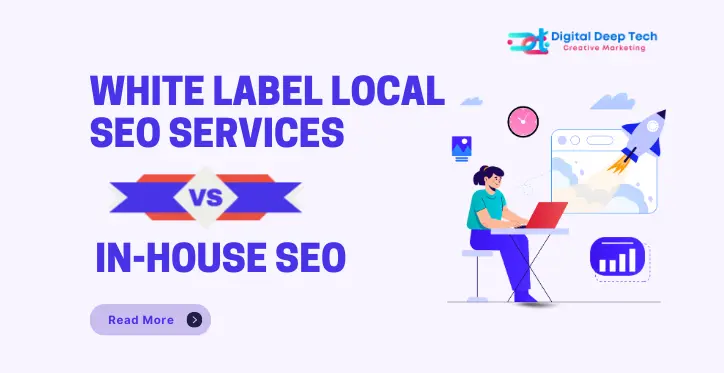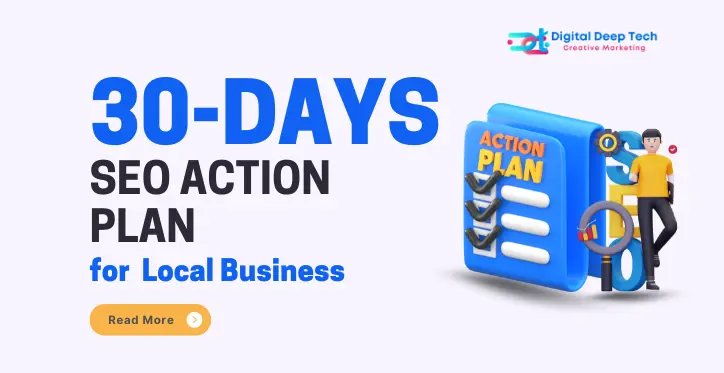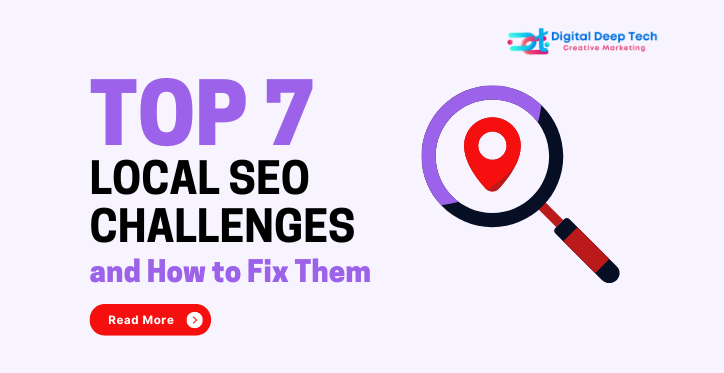Overview of Google's Search Algorithm Updates

Table of the content
Introduction
As a local SEO pro and owner of Digital Deep Tech, the one question that I keep hearing echoed into my ears more than ever lately in conversations with clients and fellow marketers is: How do you possibly keep up with Google’s constant changes to its algorithm? And, at the end of the day, it’s not easy — Google’s search algorithm updates march forward 24/7, affecting how sites rank and perform online for businesses.
In this blog post, I will walk you through the nitty-gritty of what these updates mean, why they matter, and how your website stands to still do well despite algorithm change.
Of course, the changes in Google’s search engine algorithms are very hard to understand. But by breaking down the problem and giving you practical solutions, we’ll be sure to get you ready for whatsoever updates come at you.
1. Algorithms Constantly Shift and How It Creates Impact
The problem most businesses face, though, is trying to keep up with what appears as an endless stream of updates that issue. Google makes changes to its core search algorithm multiple times per each year. This affects everything from their local SEO rankings to the simple visibility of a website on SERPs.
- Technological surprise: Google does not announce most the changes announced. It mostly blindsides most businesses with a surprise and unforeseen change in rankings.
- Devaluation of content: What worked last month now suddenly becomes the reason why your website has started ranking lower. Imagine Google’s Panda update, which went out aiming at websites with thin contents, leaving many to improve on the quality of their contents.
- Loss in revenue: For businesses that rely heavily on organic traffic, a significant decline in ranking may force the clock backward to altered sales and lead generation strategies. You may wake up one morning and find out that your top-performing pages can no longer be found on page one in Google’s results, with dramatically reduced visibility and related traffic.
To a business owner or an SEO expert like you, the changes, like these, are uncertain; this is because they culminate in sudden drops in revenue and rankings.
2. Why It Is Difficult to Keep Pace with Algorithm Updates
No doubt you’re running to keep up with a new Google search algorithm every couple of months. Business owners and marketers all across the board love getting frustrated, confused, and even panicky when their seemingly overnight plunges in rankings make them so. So, why is it so darned hard to keep up?
- Lack of transparency: Google only occasionally shares the details involved in its algorithm updates. Even big updates, such as Penguin and Hummingbird, were disclosed with vague statements that SEO professionals had to speculate upon for what actually changed. This takes some time as the SEO community decides which factors to alter and which ones not to change based on the changes that occurred.
- Fast updates: It is changing at a pace that has never been witnessed before. Google reports it issues thousands of updates in the span of just one year. Some are utterly inconsequential; others quietly changed how Google’s core search algorithm functions, so ranking websites accordingly.
- The competition is going to be keen: With the large companies trying to rank top in Google, failing to know or miss one or two updates may make it leave the competitors’ way ahead of you. You will require strict monitoring with regards to Google’s update to stay ahead of the competitors in the market.

3. Understanding Google's Search Algorithm Updates
So how does one keep tabs on what Google changes in its search algorithm without driving oneself crazy? You adapt a strong and resilient SEO strategy by being accommodating with each update.
a) E-E-A-T: Experience, Expertise, Authoritativeness, and Trustworthiness
Most of Google’s ranking system is based on the concept of E-A-T, or Expertise, Authoritativeness, and Trustworthiness. This means that it wants to rank web pages with the highest quality and credibly contented ones.
- Creating E-E-A-T: Begin to demonstrate expertise in the material. A case study or real-life example published with some deep pieces is evidence of authority in a niche by an SEO expert such as myself. You do this for your area.
- Authority Building: You now start receiving inbound links from other websites, which are all relevant and trustworthy to your niche. Guest posting, content collaborations, and mentions in roundups will do this.
- Reliability: Your website should have a secure connection (HTTPS), and information posted on it should be clear and correct. You can include reviews, testimonials, contact details, among others to show that you don’t have just any old business but a serious business.
b) Fresh Relevant Content
Evergreen content, or high quality content that endures through time, is one of the best ways to deal with algorithm updates. The search ranking algorithm from Google favors a website only because it offers value to users. Do not waste your time focusing on short trends but instead produce timeless pieces.
- Refresh the content occasionally: There are a couple of articles which are old and also the blog post is older even though it is attracting traffic. Start checking them out and refresh them with the latest information. This does not only have an influence on your ranking but also lets Google know that it is active and relevant.
- Solve the user’s problem: As I write content, I am always thinking about how it is going to serve the audience. Look out for tools like AnswerThePublic and People Also Ask by Google for questions your audience is asking so you can draft content around the answer.
Let's Discuss Your Project
Get a free one-week consultation and share your vision for digital marketing with us.
c) Optimise for local SEO
Local SEO is still one of the best activities that should not be neglected by Google’s local search algorithm. If your business delivers service in a given geographic location, then local SEO optimisation is a necessity if you are to have maintained visibility on the web.
- Place-oriented keywords: When writing your content, make sure that you have used keywords that are place-oriented in your meta descriptions and headings. For instance, if you are offering SEO services in Sydney, make sure that you have used words such as “SEO services in Sydney” on your website.
- Claim your Google My Business account: A well-optimized Google My Business has to be a part of any local SEO strategy. Ensure your business details is correct and accurate as well as see that satisfied customers do your business a favor by posting their reviews.
- Consistency of NAP: Ensure you have a similar NAP for all business platforms like citations, URLs, or directories. Different versions of your NAP lessen your rank in local SEO.
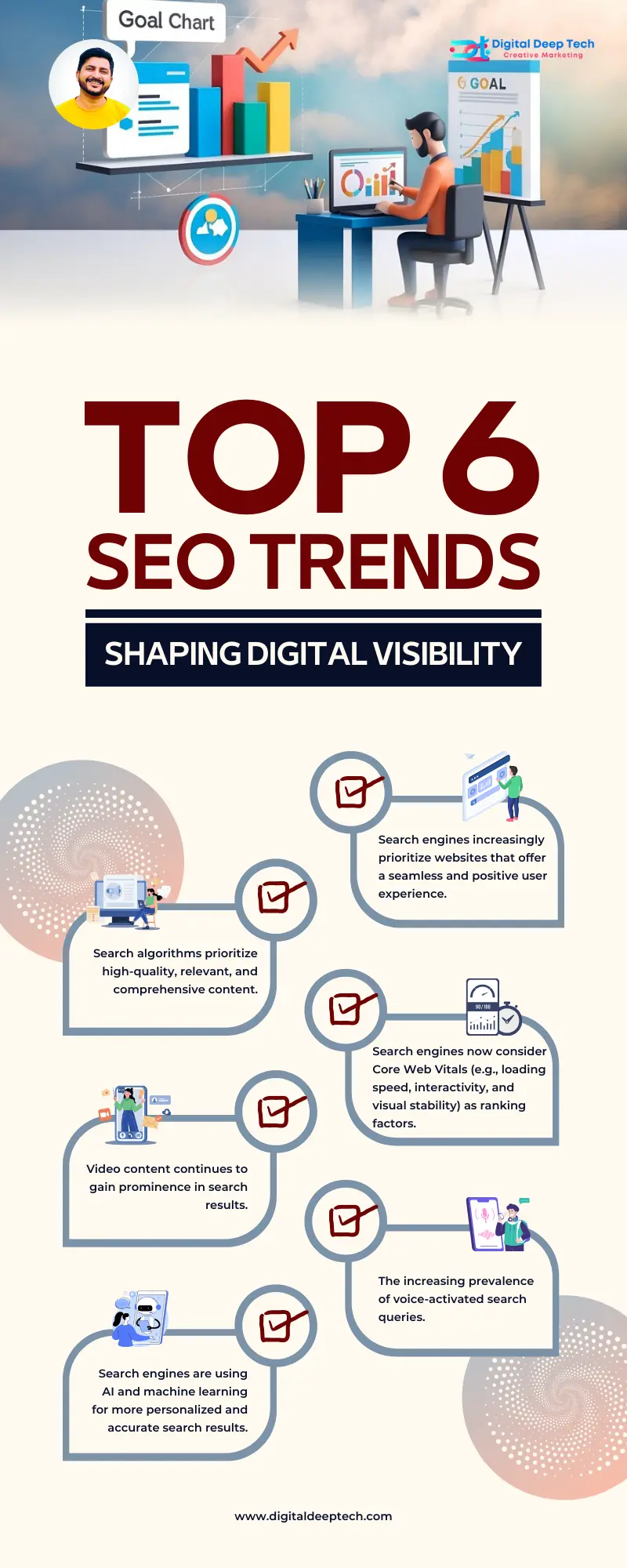
d) Investment in Mobile Optimization
With Google offering mobile-first indexing, what’s going to be crawled and ranked by default now is the mobile version of your website. If your website is not mobile friendly, then you are at risk of falling back in search rankings.
- Make your mobile page load faster: This is bound to degrade your SEO performance because it’s pretty long in loading the mobile pages. Use Google PageSpeed Insights to identify all the places; your site needs to load pretty fast on mobile device.
- Streamline mobile navigation: Clean, easy-to-tap buttons make all the difference between a frictionless user experience or not. Less is more. Clutter: Avoid it. Those intrusive interstitials like pop-ups might cost you a great user experience and rankings.

e) Use Structured Data (Schema Markup)
Structured data is probably one of the most under-leveraged SEO tools, also known as schema markup. It’s basically an HTML addition with which search engines get better information about the content of your site, and that leads to things like rich results: featured snippets or answer boxes.
- Schema markup: Schema marking for review, rating, and pricing information should also be there. Add this to your website using tools like Google’s Structured Data Markup Helper.
- Visibility: Rich results bring out your content more in the SERPs. This will enhance your CTR and subsequently your ranking.
f) Build and Maintain a Strong Backlink Profile
Backlinks were always one of the key drivers for the Google search ranking algorithm, but now it’s quality over quantity. It is no longer about having as many backlinks as possible from anywhere.
- Quality not quantity: Instead of having dozens of such links, have a few from good-quality sites in your niche. A relevant backlink from a good website will always weigh more than dozens of such irrelevant backlinks.
- Creating Quality Backlinks: Good content is the best way to earn backlinks. This could be a data study, an exclusive case study, or a complete guide; but make sure that your content is something that would link to it by people in your niche.
- Monitor the backlink profile: Use some tools like Ahrefs, SEMrush, or Moz to monitor your backlinks. Disavow regularly any links that harm your rankings by being spammy or harmful.
g) Stay on top of announcements from Google and industry news
Although Google does not update everything, as a Search Engine Optimization expert, it’s very important to be in the know and know all that is happening because there are very intensive changes made in the algorithms. I do follow up on all the latest updates on the official blog of Google and track the leading vendors of the SEO industry so that no important update evades me.
- Google Search Central Blog: This is the official Google channel for information about updates to algorithms, search trends, and best practices.
- Use industry tools: Tools like MozCast, SEMrush Sensor, and Rank Ranger monitor changes to the Google algorithm. When you know an update has dropped and how it could affect your site.
- Join SEO communities: You can join online SEO forums and communities; most are on the SEO group on LinkedIn or specific groups on Reddit, where you can connect and share with other professionals and learn from them.
4. Key Concepts and Terms Explained
To succeed through updates in Google’s search algorithm, one should understand a few key concepts. Therefore, to save your time, here is a quick glossary of terms:
- Google Core Search Algorithm: it is the algorithm from Google, ranking web pages mainly based on such factors as content quality, number of backlinks, and user experience
- Google Local Search Algorithm: type of Google’s algorithm that is involved in delivering relevant results depending on the user’s location
- E-E-A-T: Experience, Expertise, Authoritativeness, and Trustworthiness. These are among the most significant factors that Google uses in determining the quality of the content.
- Mobile-First Indexing: The way Google indexes websites mainly on the mobile version.
- Schema Markup: Structured data or content that lets the search engines understand your material and delivers a rich result.
5. Actionable Takeaways: What to Do Today
Get ahead of Google’s search algorithm updates with actionable tips that can be applied today:
- Content Audit: Go through the old material and inject new info so that it looks fresh.
- Optimize for speed: slowing down your website can harm your rankings. Test the performance of your site with GTmetrix, and many other tools.
- Customer reviews: These are the only thing worth its price in local SEO. You want your customer to comment on Google. You need them to comment other places as well.
- Quality backlinks: guest posting, shareable content, influencer partnerships in industries.
Conclusion
Advancement of the search algorithm will keep marching at Google, but with the right strategy in place, you can almost keep up with the advancement. Proper consideration of high quality content with local SEO optimization besides keeping mobile friendly and having a strong back link profile in place will keep you much better positioned to handle whatever comes your way.
Do you want to know the art of succeeding in SEO? Just WhatsApp at +91 9780668174 or schedule a one-to-one meeting. You can share this blog on social media too, so spread the word and keep others updated!
Frequently Asked Questions (FAQs)
1. What are the updates of Google's search algorithm?
The Google’s algorithm updates refer to the changes which Google makes to the ranking web pages in search results.
2. How often does Google change its algorithm?
There are thousands of updates done by Google every year, but not all of them are the major changes.
3. How will I know if my website has been influenced by an algorithm update?
Sudden changes in traffic or rankings may be a sign that you have been hit by an update.
4. What is the most significant signal Google uses in the algorithm?
Quality content always that gives value to your users.
5. How can I recover from a Google algorithm update?
If your site is suffering from negative effects, then audit for problems and improve your content, backlinks, and technical SEO.
6. What is E-E-A-T in SEO?
E-E-A-T stands for Experience, Expertise, Authoritativeness, and Trustworthiness- Key ranking factors in ranking very well on Google’s search.
7. Does Mobile Optimization Influence Rankings?
Yes, since Google makes use of mobile-first indexing, it makes mobile optimization very important to rank.
8. Backlinks: Are they dead for SEO?
A quality backlink is an important step in building up the authority and ranking of your website.
What is most the important in Local SEO?
- Utilize location-based keywords
- Optimize your Google My Business profile
- Incur customer reviews
10. Structured Data or Schema Markup - What's the point of that?
It tells Google what it is, and this improves the chance of getting indexed, and it will be caught in the feature results. Schema markup helps the search engines to understand your content much better and gives a high possibility of rich results, thus improving how visible you are.

About the Author
Deepak Sharma is the founder of Digital Deep Tech and a renowned SEO and digital marketing expert with over a decade of experience. Passionate about helping businesses enhance their online presence, Deepak specializes in creating SEO strategies that drive traffic and generate leads.
Overview of Google’s Search Algorithm Updates Read More »


